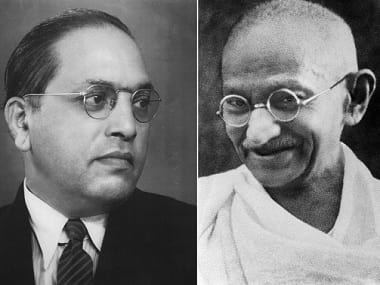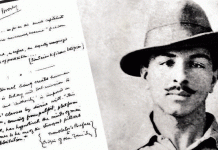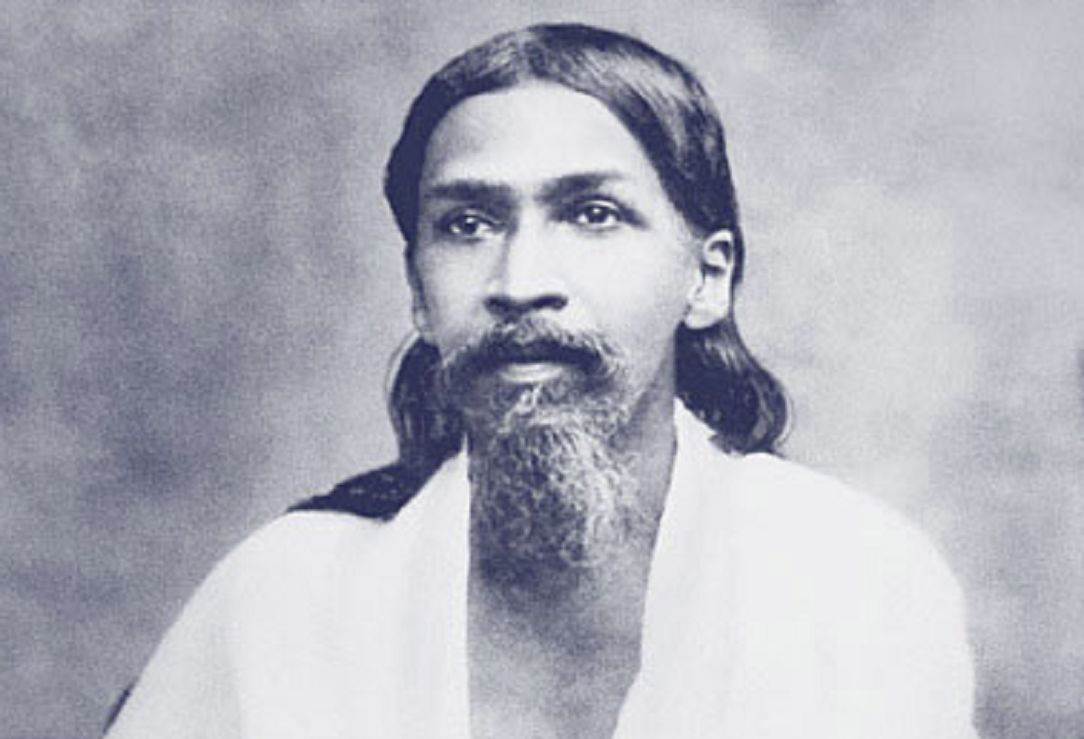Thought has done it. Thought that says, ‘I am a Catholic, ‘I am a Jew’, ‘I am an Arab, ‘I am a Muslim’, ‘I am a Christian’. Thought has created this division. So thought in its very nature, in its very action, is seen to be divisive, bringing about fragmentation. Do you see that thought must bring about fragmentation not only within yourself, but outwardly? Is it too difficult?
– Jiddu Krishnamurti
I am not very sure whether I understand Jiddu Krishnamurti. I read his books; I reflect on his lectures; and like Osho and Thich Nhat Hanh, he too occupies my consciousness. And at different turning points—wonder and ecstasy, or anxiety and bewilderment—I come back to Krishnamurti. At times, with my ‘intellect’, I seek to engage with him. But then, I realize its futility. I tell myself that Krishnamurti is neither a mathematical formula nor a sociological thesis; and my ‘methods’ or ‘knowledge’ would not help me to understand what lies beneath his words. There are moments when my earthly existence—my ‘ego’, my ‘position’, my ‘practical’ pursuits, and my worldly ambitions and anxieties—becomes overwhelmingly powerful; and I feel tempted to conclude that whatever Krishnamurti says is absurd or utopian, and it is difficult to live with him in this world where reason is instrumental, money is the ultimate power, or envy/jealousy is deeply ingrained in the prosaic practice of living.
Yet, I cannot escape Krishnamurti. Even though I fail, and remain confused and perplexed with fear and anxiety, I approach him. Possibly, I pass through some inner churning. In this article I wish to reflect on this existential voyage.
Conditioned mind and negation of freedom
The word discipline means ‘to learn’; it comes from the word disciple. A disciple is one who is willing to learn, not submitting himself to some authority, but having the urge, the intent to learn. But what we have done is to make that word mean to conform, to obey, because there is safety there—not in learning, not in the capacity to learn, but in the capacity to obey, to conform, to imitate.
– Jiddu Krishnamurti
I cannot deny that Krishnamurti has often whispered in my ears, and urged me to question my ‘conditioned’ mind. And this conditioning, I begin to realize, makes it difficult for me to see and understand a thing with freshness, wonder and totality. Instead, my ‘trained’ consciousness, my ‘knowledge’ based on old memories and experiences, and my ‘words’, ‘concepts’ and ‘theories’ act as a stumbling block. Let me give a simple illustration. The moment I say I am a ‘Hindu’ I lose my innocence, my freshness, my curiosity. Quite mechanically, I begin to quote my scriptures—Gita, or Puranas; I fail to see a flowing river as it is; I see it as ‘holy Ganga’; or for that matter, I see people as ‘Muslims’, ‘Jews’, ‘Christians’. I miss the real/living experience. I operate through borrowed words, borrowed concepts. My fossilized ‘knowledge’—based on memories—is always fragmented; my ‘knowledgeable mind’ divides, separates and fragments. I begin to operate merely through categories—the concepts I have learned from my family, my schools and universities, my politics and religion. I miss the moment. A huge gap is created between the observer and the observed.
I am a ‘Hindu’; I am a ‘Muslim’; I am an ‘Indian’; I am an ‘American’; I am ‘Brahmin’; I am a ‘Dalit’: my conditioned/fragmented/limited mind would never enable me to see a thing as it is. But then, as it is said, I need some training, some memory, and some solid knowledge to exist in the world. Yes, I cannot become a good plumber without acquiring the necessary technical skills; I cannot become a heart surgeon without acquiring the knowledge stored in medical practices; or I cannot drive a car without the knowledge of driving. Krishnamurti would not deny that. But then, even though knowledge or memory is important in pursuing technical things, it often proves to be an obstacle or a barrier in human relationships. Is it the reason that even in supposedly most intimate conjugal relationships we operate through ‘images’ about each other? My wife is ‘soft’ and ‘beautiful’; my husband is ‘pushy’ and ‘ambitious’; and our relationship is based on these perceptions. Is it possible to love my wife or husband as she/he is? Or is it that we are attached to images, and our relationship becomes just a performance—dishonest and inauthentic? Is it that conflict is inherent in a relationship of this kind?
Likewise, is freedom—the freedom to see, wonder, explore, realize—possible if my ‘conditioned’ mind remains attached to a fixed ideology or ‘ism’? Can I be free as a ‘Marxist’, a ‘Gandhian’, a ‘liberal bourgeois’, an ‘atheist’, a ‘believer’, a ‘Buddhist’, a ‘Sufi’? No matter how tempting these ideologies are, I would remain restricted, fragmented and conditioned if I am confined to a fixed ‘ism’. We would quarrel. We would fight. We would evolve very sophisticated theories of separation. But we would lose the curiosity to exist as a wanderer. Is it the reason that, for Krishnamurti, ‘truth is a pathless land’? A deconditioned mind; a mind free from the burden of a fixed tradition, a fixed God, a fixed Prophet, a fixed revolution, a fixed book; or a mind with eternal curiosity and absolute mindfulness: is it possible? We are conditioned; and fixed dogmas, ideologies and books tend to give us a sense of ‘security’—the feeling that we have arrived, and there is nothing unknown. There is nothing beyond the Quran, the Bible, the Upanishads; or this guru or that prophet: this fixation generates a sense of security. But this security is false; it actually fears the unknown territory.
Intellectually, I understand what Krishnamurti is saying. However, I am not very sure whether I realize it deeply and honestly. Or is it that I too love to seek refuge in a fixed path? Is it that the ‘pathless land’ frightens me? Is it that I prefer false security more than the spirit of innocence, wonder, curiosity or the call of the unknown? Is it that I become a victim of my knowledge, my training, my past, my memory, my conditioned existence? Is it that I exist as a conditioned/trained ‘performer’ rather than a living soul? Krishnamurti, it seems, has thrown me into a turbulent ocean.
Living intensely, dying meaningfully
Have you ever ended anything without pressure, without finding a cause, analyzing, wasting time on it? End it! This is going to happen when death comes. You can’t argue with it and say, ‘please give me a few more days’. You can’t analyze it. You can’t discuss with it.
– Jiddu Krishnamurti
Krishnamurti, I must say, has made me immensely sensitive to the reality of fear. Yes, the psychology of fear surrounds our existence. And as an ordinary mortal with all sorts of vulnerabilities, I too experience fear. And I begin to understand it. Is it that my fear is rooted in the notion of time? I fear the unknown; I worry about my ‘future’. Today I am healthy; I have a ‘status’; I have my bank balance; but I am worried about my old age, my post-retirement days, my fragile body. Likewise, right now I have severe headache; I take a pill; I feel better. But then, I carry with me the memory of this pain; and I begin to shiver the moment I entertain the idea that this pain might recur tomorrow. In other words, I do not live here and now. I am haunted by the past, worried about the future. Yes, time constrains me; time causes fear.
I also understand that it is one’s ‘ego’ that causes fear. You think that you are a great ‘scholar’; you are worried about the stability of your position. Who knows tomorrow someone might surpass you, and become more scholarly and famous—with more lucrative awards and prizes? Your ‘ego’ is always insecure and lonely; it cannot melt and dissolve; it seeks to possess and hold. Hence, the more egotistic you are the more fearful you are. In fact, with these inflated egos, even our relationships are filled with fear. Is it what we call love? Or is it that you possess your beloved, your wife? Is it that you depend on her, or use her only to overcome your loneliness? And hence, you continually fear that she might leave you; or she might find a ‘better’ person than you? Can love and fear coexist? Or is it mere deception—a continual war of egos?
Krishnamurti disturbs me. These difficult questions confront me. While intellectually I agree with him, I feel that it is really difficult to overcome fear. And what about the ultimate fear—the fear of death? Is it that we do not live deeply and intensely, and hence as discontented beings we fear death? Possibly, we do not live with absolute mindfulness because we postpone living in the name of a hypothetical future. Here is a beautiful sunset; I miss it; I have to sign a business contract for gaining huge profit in the future. I am only running… And hence when death comes I realize that I have not lived at all. I am sad and frightened. Or is it that we never like to end; instead, we seek to possess, and carry everything with us—knowledge, attachment, memories, wealth, fame, desire? For instance, is it possible to watch a sunset intensely without theorizing it, describing it, or carrying a desire for having the same experience tomorrow? Can we end it there without any residue and possession? Only then is it possible to live and die simultaneously.
Yes, Krishnamurti, I understand you—intellectually, philosophically. But I know I am still full of fear. Yet, you remain an addiction. I cannot escape you. And hence, time and again I would like you to remind me:
There is an ending to sorrow if one remains with it completely, holds it as one would a precious baby, holds it in one’s heart, one’s brain, stays with it. And you will find this extraordinarily arduous, because we are so conditioned that the instinctive reaction is to get away from it. But if you remain with it, you will find there is an ending—totally—to sorrow. This doesn’t mean that you become insensitive to it.
Avijit Pathak is Professor of Sociology at JNU.











